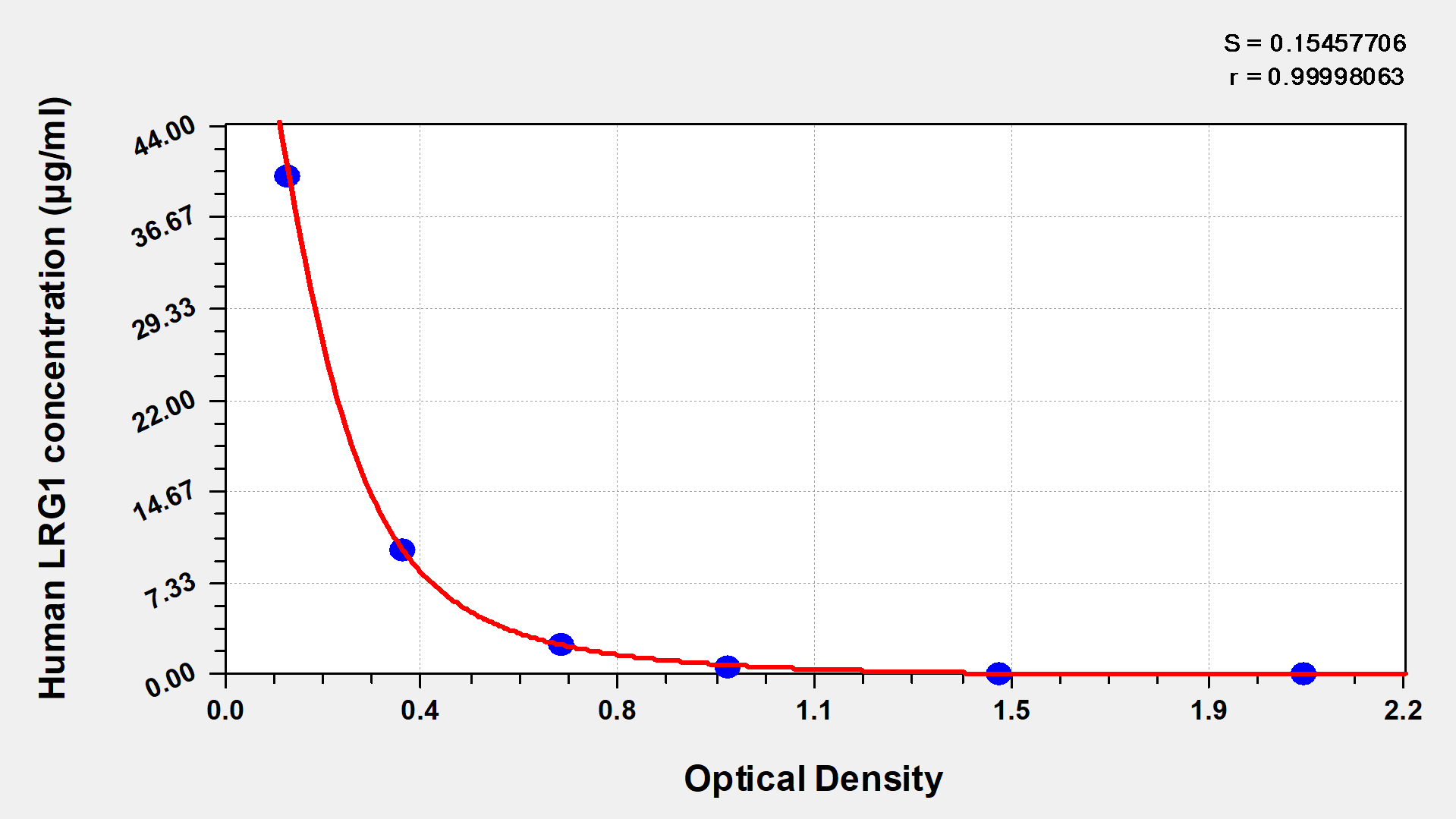Leucine-rich alpha-2-glycoprotein 1 (LRG1) is a secreted glycoprotein that belongs to the leucine-rich repeat protein family. Hepatocytes and neutrophils primarily produce this protein, and its expression levels rise substantially during inflammatory conditions and various disease states. LRG1 has emerged as a valuable biomarker in clinical research due to its involvement in angiogenesis, cell adhesion, and immune responses. The protein's upregulation occurs in multiple pathological conditions. This makes it an important target for diagnostic and therapeutic research applications.
The Human leucine-rich alpha-2 glycoprotein 1 ELISA Kit (CSB-E12962h) is designed for the quantitative measurement of LRG1 in human samples. This competitive assay can detect LRG1 concentrations ranging from 0.156 μg/mL to 40 μg/mL with a sensitivity of 0.156 μg/mL. The kit works with serum, urine, and tissue homogenates, requiring 50-100 μL sample volumes. Results are obtained through measurement at 450 nm wavelength, with assay completion achievable within 1-5 hours.
Application Examples
Note: The following application examples are drawn from a selection of publications citing this product. For additional applications, please refer to the full list of references in the "Citations" section.
This ELISA kit has been used in clinical research studies to measure leucine-rich alpha-2-glycoprotein 1 levels in human biological samples. The kit has been applied in comparative analytical studies and biomarker research across different patient populations and clinical conditions.
• Clinical biomarker research: Used to quantify LRG1 concentrations in serum and urine samples from patients with various clinical conditions
• Comparative analytical studies: Applied in method validation studies comparing different analytical approaches for LRG1 detection
• Diagnostic biomarker research: Used in studies evaluating LRG1 as a potential diagnostic marker, particularly in appendicitis research
• Multi-sample analysis: Applied for processing clinical specimens including both serum and urine samples in biomarker discovery studies






